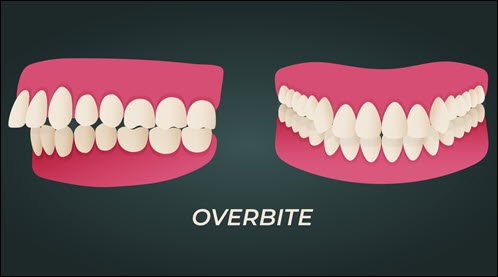Overbites and underbites are more than just cosmetic issues; they can have significant long-term effects on your oral health and quality of life if left uncorrected. Understanding these effects can help you make informed decisions about seeking treatment. Let’s take a closer look at the potential consequences of untreated overbites and underbites.
The Ripple Effect of Overbites and Underbites
 Both overbites and underbites can lead to a range of issues that extend beyond the appearance of your smile.
Both overbites and underbites can lead to a range of issues that extend beyond the appearance of your smile.
Long-Term Effects of Untreated Overbites and Underbites
- Tooth Decay and Gum Disease: Misaligned teeth are harder to clean, increasing the risk of cavities and gum disease.
- Speech Issues: Both conditions can affect your ability to articulate certain sounds, impacting your speech clarity.
- Chronic Pain: The misalignment can lead to chronic jaw pain, headaches, and even neck pain.
- Eating Difficulties: Biting and chewing can become challenging, affecting your nutrition and enjoyment of food.
- Breathing Problems: Severe cases of overbites and underbites can contribute to breathing difficulties, including sleep apnea.
The Impact of Underbites
Underbites can be caused by genetics, early childhood habits, or jaw development issues. They can impact your ability to bite and chew properly and may lead to other health concerns.
Long-Term Effects of an Untreated Underbite
- Tooth Wear and Damage: An underbite can cause uneven wear on your teeth, increasing the risk of fractures and decay.
- Jaw Pain and TMD: The misalignment can strain your jaw muscles and joints, leading to temporomandibular joint disorder (TMD) and chronic pain.
- Digestive Issues: Difficulty chewing properly can affect your digestion, as food isn’t broken down as effectively.
- Self-Esteem and Social Impact: Beyond physical health, an untreated underbite can affect your confidence and social interactions.
Addressing overbites and underbites early is crucial to prevent these long-term effects. Orthodontic treatment can realign your teeth and jaws, improving both your oral health and overall well-being. Don’t hesitate to consult with an orthodontist to explore your treatment options and take control of your dental health.

